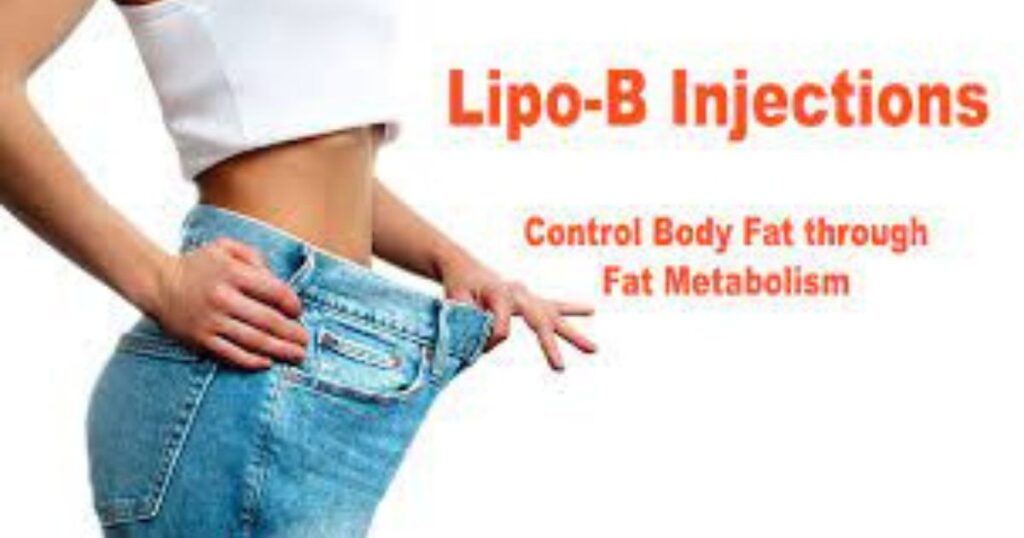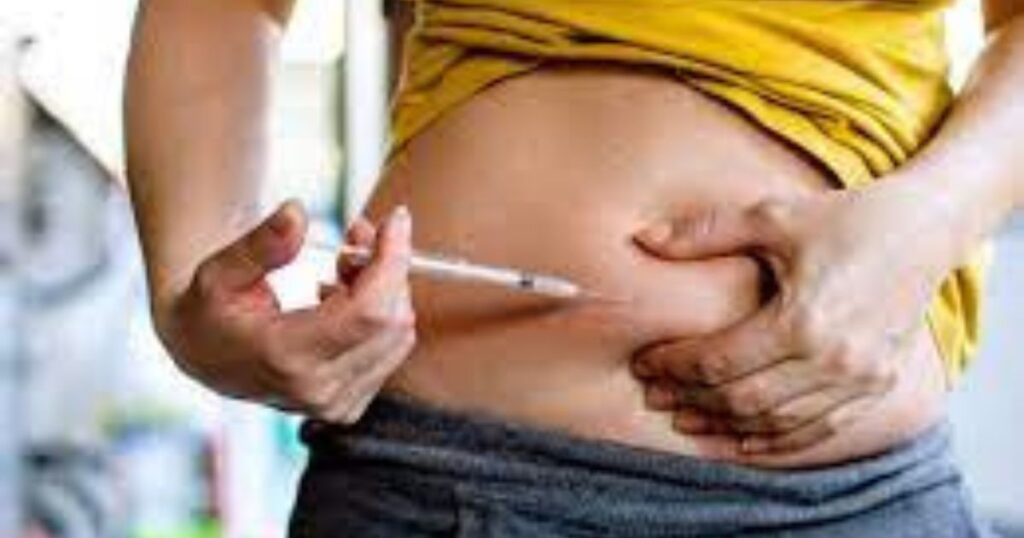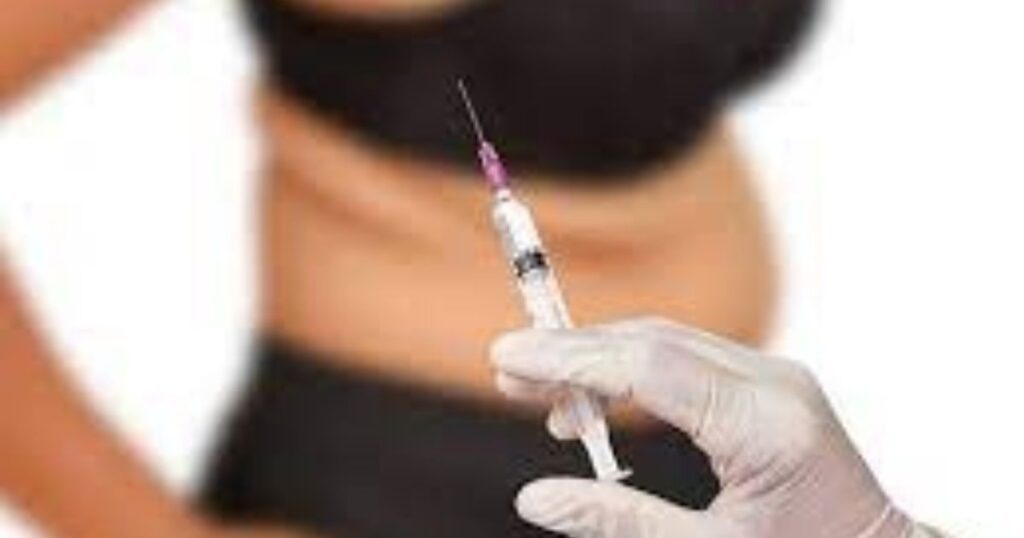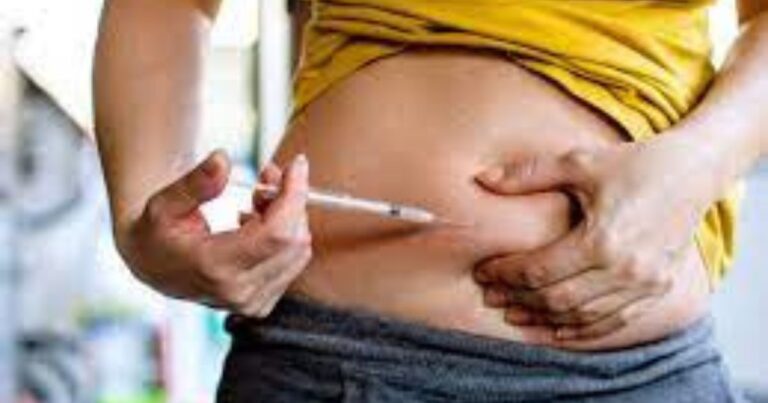What Are Lipo Shots?
Lipotropic injections, also known as lipo shots, are injections that contain a combination of vitamins, amino acids, and other nutrients that are believed to aid in the breakdown and removal of fat from the liver. These injections are often used as a weight loss supplement, and they are typically administered in the upper arm or thigh.
The ingredients in lipotropic injections can vary, but they often include vitamin B12, which can help boost energy levels and metabolism, as well as choline, inositol, and methionine, which are all involved in fat metabolism. Some formulations may also contain other vitamins, such as B-complex vitamins or vitamin C.
While some people believe that lipotropic injections can aid in weight loss, there is limited scientific evidence to support this claim. It is important to note that lipotropic injections are not a substitute for a healthy diet and exercise, and they should only be used under the supervision of a healthcare provider. Additionally, lipotropic injections may cause side effects, such as pain or swelling at the injection site, so it is important to discuss any potential risks and benefits with a healthcare provider before using them.
Constituents Of Lipo Shots
The specific constituents of lipo shots can vary depending on the provider and the formulation, but some common ingredients include:
Methionine:An amino acid that is believed to help the liver process fats and reduce fat buildup in the body.
Inositol: A B-vitamin-like compound that is believed to help break down fat and reduce insulin resistance.
Choline:A nutrient that is essential for the proper functioning of the liver and is believed to help with the metabolism of fats.
B vitamins: Including B12, which is believed to help boost energy levels and support the metabolism.
L-carnitine: An amino acid that is involved in the transport of fatty acids into the mitochondria, where they can be burned for energy.
Side Effects Of Lipo Shot
Here are 15 potential side effects of lipotropic injections:
1. Pain, swelling, or redness at the injection site
2. Itching or rash at the injection site
3. Nausea or vomiting
4. Headache
5. Dizziness
6. Diarrhea or constipation
7. Allergic reactions, including hives, swelling, and difficulty breathing
8. Elevated blood pressure
9. Heart palpitations or irregular heartbeat
10. Insomnia or sleep disturbances
11. Anxiety or nervousness
12. Depression or mood changes
13. Muscle cramps or weakness
14. Fatigue or weakness
15. Changes in menstrual cycle

It is important to note that these side effects may not occur in everyone who receives lipotropic injections, and the severity and duration of side effects can vary depending on the individual. It is recommended to discuss any concerns or potential side effects with a healthcare provider before using lipotropic injections.
Losing weight with B12 and lipotropic shots (youtube>WXYZ-TV Detroit | Channel 7 )
Procedure For Receiving Lipotropic

Consultation:
Before receiving lipotropic injections, you will likely have a consultation with a healthcare provider to discuss your medical history, current medications, and any concerns or questions you may have. They will also explain the benefits and potential risks of the injections.
Preparation:
Once you are ready to receive the injection, the healthcare provider will clean the injection site, typically on the upper arm or thigh, with an alcohol pad to help prevent infection.
Injection:
The healthcare provider will then inject the lipotropic solution into the cleaned area using a syringe and needle. The injection is typically quick and relatively painless.
Observation:
After the injection, the healthcare provider may ask you to remain in the clinic or office for a short period of time to monitor for any potential side effects or adverse reactions.
The frequency and dosage of lipotropic injections can vary depending on the individual and their specific needs or goals. It is important to follow the instructions and recommendations of your healthcare provider to ensure the safe and effective use of lipotropic injections.
It is also important to note that lipotropic injections should only be administered by a licensed healthcare provider, as they involve the use of needles and injections, which can carry potential risks if not performed properly.
Lipo Shots Dosage And Frequency
1. The dosage and frequency of lipotropic injections can vary depending on the specific formulation used, as well as the individual’s weight, age, and overall health.
2. In general, lipotropic injections are typically administered once or twice a week, with a typical dose ranging from 1 mL to 2 mL per injection.
3. The dosage and frequency of lipotropic injections should be determined by a healthcare provider based on individual needs and goals.
It is important to follow the instructions and recommendations of a healthcare provider when using lipotropic injections, as they can carry potential risks and side effects.
Cost Of Lipo Shots
1. According to a report from the American Society of Plastic Surgeons, the average cost of lipotropic injections in the United States is about $50 per injection, although the cost can vary depending on the provider and the location.
2. A survey conducted by RealSelf, a website that provides information on cosmetic treatments and procedures, found that the average cost of lipotropic injections in the United States is about $60 per injection, with prices ranging from $20 to $100 per injection.
3. Some providers may offer package deals or discounts for multiple injections. For example, a clinic in California advertises a package of 10 lipotropic injections for $300, which works out to $30 per injection.
It’s important to note that the cost of lipotropic injections can vary widely depending on the provider, location, and other factors, so it’s a good idea to shop around and compare prices before committing to treatment. Additionally, as I mentioned earlier, insurance typically does not cover the cost of lipotropic injections, so patients should be prepared to pay out of pocket for this treatment.
Does Lipo Shots Work Or Not?
There is limited scientific evidence to support the effectiveness of lipotropic injections, commonly known as lipo shots, for weight loss.
A review of studies on the use of lipotropic injections for weight loss found that while some studies reported modest weight loss and improvements in body composition, the overall quality of the evidence was poor due to small sample sizes, short study durations, and lack of controls. (1)
Another study published in the Journal of Alternative and Complementary Medicine found that there was no significant difference in weight loss between participants who received lipotropic injections and those who received a placebo injection. (2)
It is important to note that while lipo shots contain a combination of vitamins, minerals, and amino acids that are believed to help the body metabolize fat more efficiently, there is no scientific evidence to support the idea that these injections are effective for weight loss.
Furthermore, lipo shots may come with potential risks and side effects, such as pain or swelling at the injection site, allergic reactions, and interactions with medications. It is always important to consult with a healthcare professional before starting any new weight loss regimen, including lipo shots.
Other Alternatives Of Lipo Shots

There are several alternatives to lipotropic injections that may be effective in promoting weight loss and reducing body fat. Here are some examples:
Dietary Changes:
Making changes to your diet is often the most effective way to promote weight loss and reduce body fat. A diet that is high in protein and low in carbohydrates and processed foods has been shown to be effective in promoting fat loss, especially when combined with regular exercise. A systematic review published in the International Journal of Obesity and Related Metabolic Disorders in 2004 found that high-protein diets were associated with greater fat loss and improved body composition compared to low-protein diets.
Exercise:
Regular exercise is also an effective way to promote weight loss and reduce body fat. Both cardio and strength-training exercises have been shown to be effective in promoting fat loss and improving body composition. A meta-analysis published in Obesity Reviews in 2017 found that exercise was associated with a significant reduction in body fat percentage and an increase in lean body mass.
Medications:
There are several medications that have been approved by the U.S. Food and Drug Administration (FDA) for weight loss, including phentermine, liraglutide, and naltrexone-bupropion. These medications work by suppressing appetite, reducing food intake, or altering the way the body processes food.
Acupuncture: Acupuncture is a traditional Chinese medicine technique that involves inserting thin needles into specific points on the body. Studies have shown that acupuncture may be effective in reducing body weight, body mass index (BMI), and waist circumference (1, 2).
Chromium supplements: Chromium is a mineral that plays a role in regulating blood sugar levels and metabolism. Some studies have found that chromium supplements may help reduce body weight and improve insulin sensitivity (3, 4).
Green tea extract: Green tea extract is a natural supplement that contains high levels of catechins, which are antioxidants that may help boost metabolism and promote fat burning. Some studies have shown that green tea extract may be effective in reducing body weight and body fat (5, 6).
Garcinia Cambogia: Garcinia Cambogia is a tropical fruit that contains hydroxycitric acid (HCA), which is believed to inhibit the body’s ability to convert carbohydrates into fat. Some studies have shown that Garcinia Cambogia may help reduce body weight and fat mass (7, 8).
CLA supplements: Conjugated linoleic acid (CLA) is a type of fatty acid that is found in meat and dairy products. Some studies have shown that CLA supplements may help reduce body fat and improve body composition (9, 10).
Non-invasive procedures:
There are several non-invasive procedures that have been developed to reduce body fat, including cryolipolysis (also known as CoolSculpting), radiofrequency lipolysis, and laser lipolysis. These procedures use various methods to destroy or remove fat cells without the need for surgery or injections.
FAQs
1. What are lipo shots?
Lipo shots, also known as lipotropic injections, are a type of injection containing a combination of amino acids, vitamins, and minerals that are believed to boost metabolism and aid in weight loss.
2. How do lipo shots work?
Lipo shots contain compounds that help the liver break down fats and eliminate them from the body. They also help increase energy levels, which can lead to an increase in physical activity and calorie burn.
3. Are lipo shots safe?
Lipo shots are generally considered safe when administered by a qualified healthcare professional. However, as with any medical procedure, there are some potential risks and side effects that should be discussed with a healthcare provider.
4. Who can benefit from lipo shots?
Lipo shots may be beneficial for individuals who are struggling with weight loss and have not had success with other methods. They may also be helpful for individuals who have a deficiency in certain vitamins and minerals.
5. Are lipo shots a substitute for a healthy diet and exercise?
No, lipo shots should not be viewed as a substitute for a healthy diet and exercise routine. They should be used in conjunction with a balanced diet and regular physical activity for optimal results.
Also Check
Alli Weight Loss Pills : Uses, Side Effects, and More in 2023

